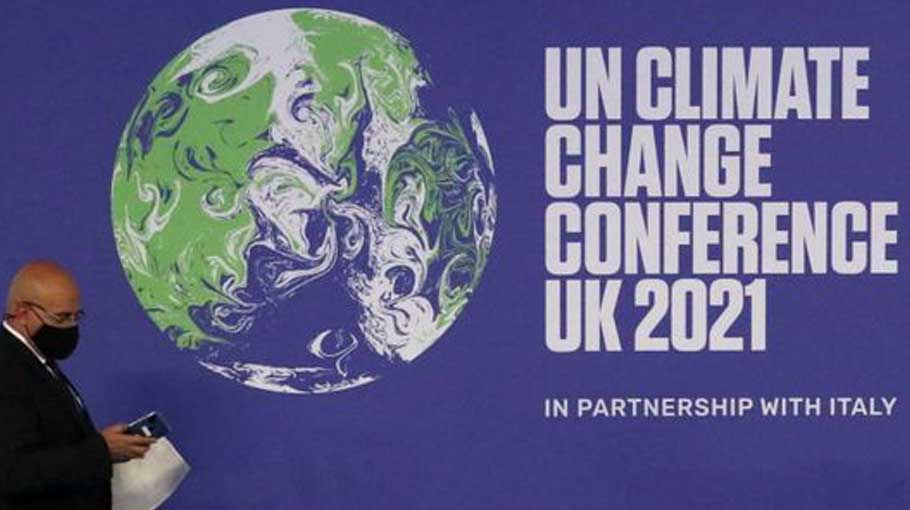COP26: Climate change is already wreaking havoc
World leaders must give climate change their topmost priority and address it now

The UN Climate Change Conference, COP26, has already begun in Glasgow, UK, and it is scheduled to continue till 12 November. Several world leaders, including US President Joe Biden, are on their way to Glasgow.
The Intergovernmental Panel on Climate Change, IPCC, in its August 2021 report, has already described that climate change is widespread, rapid, and intensifying. Many of these changes are unprecedented and in motion. The UN Secretary-General Antonio Guterres has called these findings a “code red of humanity”.
Despite irrefutable evidence of the severe impacts of climate change, the world continues to ignore its urgency. The leaders are ignoring the crisis altogether or busy in the blame game. The lack of seriousness by the political class to see and realise the current destruction by changing climate leads to repeated failures of COP conferences and all other climate negotiations.
It has even become a cliché for world leaders to talk that climate change needs to be stopped as we need to protect the planet for future generations. This pretentious messaging doesn’t help the critical and urgent need for the global fight against climate change. The world erroneously believes that the impacts of climate change are something to come in the future, not of concern at present.
The global average temperature has already increased 1 degree C since the beginning of the last century. However, the rate of warming has been more than doubled in the previous 40 years compared to the earlier period. The uneven pattern of warming has already affected some regions more than others.
The world leaders must give climate change their topmost priority
and address it now. They must listen to the Chair of the Elders, Mary
Robinson, while negotiating at the COP26 Glasgow: “Now is the
moment for decisive action, not obfuscation or half measures.”
Read More: Cumilla incident and its consequence
The Arctic region is warming faster than the rest of the world. I had moved to the Swedish city Uppsala 30 years ago. During that period, Uppsala’s temperature has, on average, already become 1.5 degrees C warmer, and it has moved from a cold-temperate climate zone to a warm-temperate climate zone. The city is being forced to revamp its rainwater drainage system.
The situation is much worse in arid regions like the Middle East, which is warming twice faster than the global average. Many countries have been consistently recording over 50 degrees C in the summer months, and urban centers have been facing agonising high temperatures. Extreme temperature and severe droughts have already affected economic activities and agricultural production in the region.
Extreme weather patterns
Recent climate change-induced extreme events like heavy rainfall, heatwaves, high floods have broken historical records considerably. According to the World Meteorological Association (WMO), the number of climate and weather-related disasters has already increased five times over 50 years.
Though improved early warning saves lives, economic losses have become massive. In the US alone, in 2020, there were record-22 separate billion-dollar climate and weather-related disasters.
Political leaders and media keep saying climate change will force people to migrate in the future. It is not true as climate change has already forced people to leave home and move to other areas. The UN High Commissioner for Refugees (UNHCR) says that the number of people displaced by climate disasters has increased to 21.5 million in the last decade.
As per the Internal Displacement Monitoring Center (IDMC), 7 million people in more than 100 countries were living in displacement in 2020 alone due to climate and weather-related disasters. The top 5 countries with the highest disaster-induced displaced population are Afghanistan, India, Pakistan, Ethiopia, and Sudan.
In 100 years, the sea level increase has been about 16 to 21 centimetres, and almost half of that increase has taken place in the last three decades. Nasa says that the current rate of sea-level rise is unprecedented compared to the past several millennia.
Though small island countries and coastal plains are not underwater yet, warming seawater and climate change-induced coastal erosion have brought significant changes in their human settlement pattern and socioeconomic conditions.
Climate change has already brought changes to water supply and demand patterns. Countries have started disputing more over their shared rivers. The existing arrangement of water resources between and within countries in the arid and semi-arid regions has become more conflictual.
Climate change-caused natural disasters are also increasingly playing an important role in causing civil wars. Intra-state armed conflicts in Sudan, Syria, and the Lake Chad basin have been partially attributed to climate change taking away people’s livelihoods and lives. Military coups have increased again worldwide, and this year alone, Africa has witnessed six of them; all the countries experiencing political instability are most affected by climate risks.
Thus, the climate change impacts are not something to be worried about in the future only; they are already there and creating huge ecological, economic, social, political, and humanitarian crises.
The world leaders must give climate change their topmost priority and address it now. They must listen to the Chair of the Elders, Mary Robinson, while negotiating at the COP26 Glasgow: “Now is the moment for decisive action, not obfuscation or half measures.”
Ashok Swain is a Professor of Peace and Conflict Research, at Uppsala University, Sweden.
Source: Gulf News
Related News:



